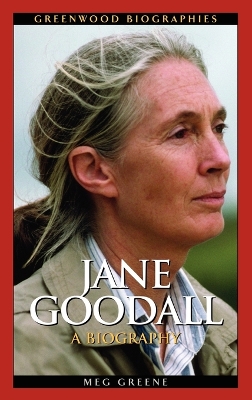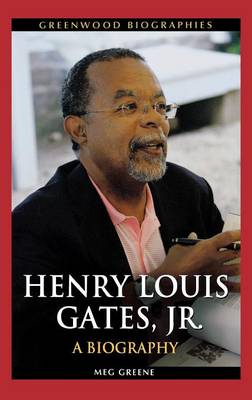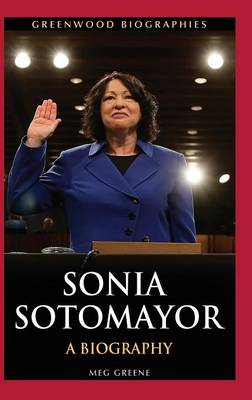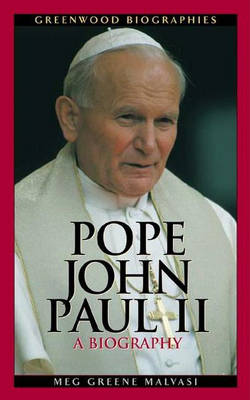Greenwood Biographies
7 total works
In this new biography, students will follow Agnes Gonxha Bojaxhiu from her humble Albanian birth to worldwide celebrity as Mother Teresa. The nun who attended to the dying and diseased in Calcutta, India, and established her Missionaries of Charity around the world is revealed to have a singular determination from a young age. As a woman in the patriarchal Catholic system, she had to prove to the hierarchy, even the Vatican, that she was capable of handling each project she proposed. Her vision to live and work among the poorest of the poor as one of them led to the founding of a new order that tended to society's outcasts. The narrative chronicles the expansion and success of the order and the eventual attention that was showered on her efforts. This increasing attention led to scrutiny and criticism of ideology, methods of care, and financing. Why did she reject better medical equipment for her patients yet receive the latest treatment and best care when she herself was ailing? Why did she take money from and try to help Charles Keating, a major player in the savings and loan scandal of the 1980s? The accusation of hypocrisy, among others, are discussed as is her controversial beatification. Readers will be challenged to consider for themselves whether Mother Teresa deserves to be sainted.
Mother Teresa is characterized as being ordinary and her life as mundane. The biography suggests that she transcended her ordinariness with a singular belief that she was called to life's work. When this work brought fame, which she never sought, she used it to further her causes. In a global age, celebrity worship allowed her to work the system. She became an icon of service and selflessness, but her human flaws remained behind the saintliness.
Goodall's life is revealed from her earlier days growing up in England and the influence of her mother, to her experiences living and observing chimpanzees in Africa, and her undying efforts to promote conservation of wildlife. A timeline lists important events in her life, and a bibliography of print and electronic sources provides suggested readings for students and general readers.
Billie Holiday (1915-1959), the legendary jazz singer whose vocal stylings were deeply affecting, continues to enthrall. This biography conveys her hard-luck youth, career triumphs, and then decline and early death. At age 14, despite growing up with an absentee musician father, little schooling, a rape at 10, and jail time for prostitution, this extraordinary girl moved to New York City to find work as a dancer or singer. She soon became the toast of Harlem and went on to tour and record with the biggest names in jazz.
Holiday's career took off in the 1930s, during the Depression, and the biography evokes the era and atmosphere of the jazz club scene. The state of race relations in the country is discussed as Holiday tours with white bandleaders such as Artie Shaw and even as she sings about lynching in the controversial Strange Fruit. The narrative further chronicles Holiday's relationships, descent into drug addiction, the subsequent diminishment of her talent, and tragic early death. Readers today will then want to seek out Holiday's recordings to more fully appreciate her interpretations of the songs of that classic era.
Henry Louis Gates, Jr.: A Biography is the first comprehensive volume about a man hailed as one of America's most influential scholars. Tracing Gates's life from his West Virginia birth, the book follows him through his undergraduate education at Yale and then to Cambridge, where he became the first African American to receive a doctorate. His current activities as a Harvard University professor, director of the W.E.B. Du Bois Institute for African and African American Research, and editor-in-chief of TheRoot.com, a daily, online magazine focusing on issues of interest to the African American community, are explored as well.
The biography also provides insights into Gates's groundbreaking work as a critic, scholar, and author, probing his wide-ranging interests, his many accomplishments, and his invaluable revelations about the contributions of African Americans to the nation's literature and history. Most important, the book provides readers with a fuller understanding of African American history and literature—and of the nature of today's racial politics.
This insightful biography introduces readers to Justice Sonia Sotomayor, a remarkable woman with a single-minded pursuit of educational excellence, who rose from poverty in a Bronx housing project to a seat on the U.S. Supreme Court.
Sonia Sotomayor: A Biography is an overview of Justice Sotomayor's life and career from her childhood to her ascent to the Supreme Court. It is also an early assessment of her performance on the court, her relationships with her colleagues, and the particular influence she is likely to exert on future decisions.
Sharing an inspirational, rags-to-riches story, the book begins with Sotomayor's childhood in an East Bronx housing project. It follows her to Princeton, where she was a student activist, and to Yale Law School. Equally important to an understanding of this influential judge is the discussion of her career as a prosecutor for the City of New York and as a judge in the District Court for the Southern District of New York and the Second Circuit Court. Examining her reputation as a tough but fair jurist, the book explores the influence of these years which, at the time of her appointment, established her as the only Supreme Court justice with experience as a trial judge.
The life of Karol Wojtyla would be remarkable even if he never became the Millennium Pope, revered by millions worldwide. From a Polish schoolboy who loved outdoor pursuits and quietly coped with family tragedy, he matured into a talented linguist, actor, and author, and experienced Nazi occupation, the Iron Curtain, and Solidarity's overthrow of Communism. His rise through the ranks of the Catholic Church was accelerated upon recognition of his gifted mind, combined with his behind-the-scenes activism and rapport with parishioners, especially youths.
The reign of John Paul II has transcended the Vatican and the Catholic sphere, as he has worked to heal the rift between Catholics and Jews, and Catholics and the Eastern Orthodoxy. He has also served as an ambassador to the world, traveling relentlessly to reach out to the masses, even as he battles Parkinson's disease and old age. This balanced narrative conveys the poignancy of his family ties and his admirable character and intellect, yet it also acknowledges criticism of conservative papal positions. A bibliography of print and electronic resources and a timeline complete the volume.




